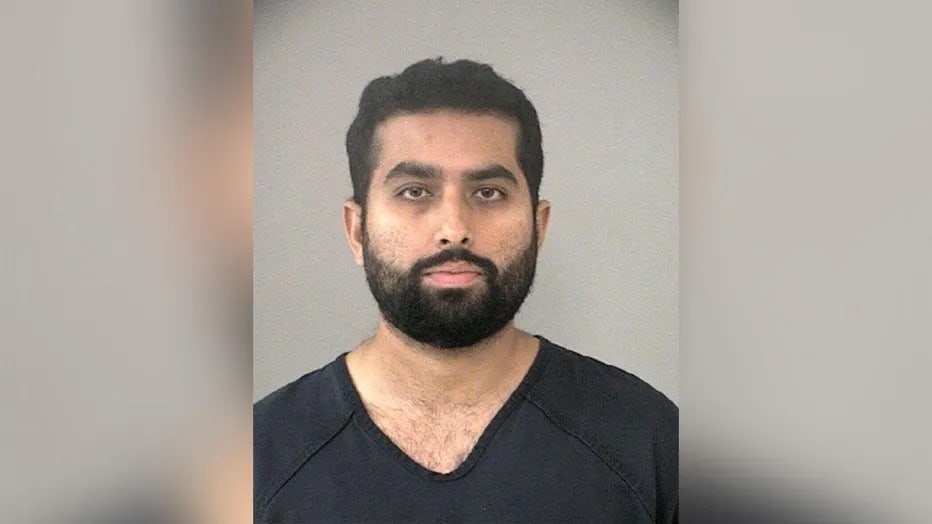Southeast
Supreme Court upholds GOP-drawn voting map in South Carolina gerrymandering case

The Supreme Court ruled on Thursday to reverse a lower court’s decision that said a South Carolina redistricting map was unconstitutional, rejecting the idea that it was racially discriminatory.
In a 6-3 decision, written by Justice Samuel Alito, the high court said that “a party challenging a map’s constitutionality must disentangle race and politics if it wishes to prove that the legislature was motivated by race as opposed to partisanship. Second, in assessing a legislature’s work, we start with a presumption that the legislature acted in good faith.”
“In this case, which features a challenge to South Carolina’s redistricting efforts in the wake of the 2020 census, the three-judge District Court paid only lip service to these propositions,” the decision states.
NAACP LASHES OUT AT ‘HATE-INSPIRED’ SUPREME COURT AFTER AFFIRMATIVE ACTION RULING
Sprinklers water the lawn in front of the U.S. Supreme Court on April 29, 2024. (Bill Clark/CQ-Roll Call, Inc via Getty Images)
“That misguided approach infected the District Court’s findings of fact, which were clearly erroneous under the appropriate legal standard,” Alito wrote.
The case stems from a challenge by the ACLU and the NAACP claiming that the redrawn maps following the 2020 census were illegally gerrymandered and had urged the justices to rule in time to impact upcoming congressional races.
However, a federal court panel that had initially struck down the maps as unconstitutional said in late March it was “plainly impractical” to wait for the Supreme Court to decide, and allowed the disputed maps to stand.
It is unclear the extent the high court’s ruling may will have on other 2024 elections, with many states already holding primaries or setting deadlines for early voter registrations.
The high court’s conservative majority in its ruling expressed concern over a federal court ruling that initially ordered South Carolina to create a new congressional map in time for the November 2024 election.
SUPREME COURT RULES IN FAVOR OF CFPB, BRAINCHILD OF SEN. ELIZABETH WARREN
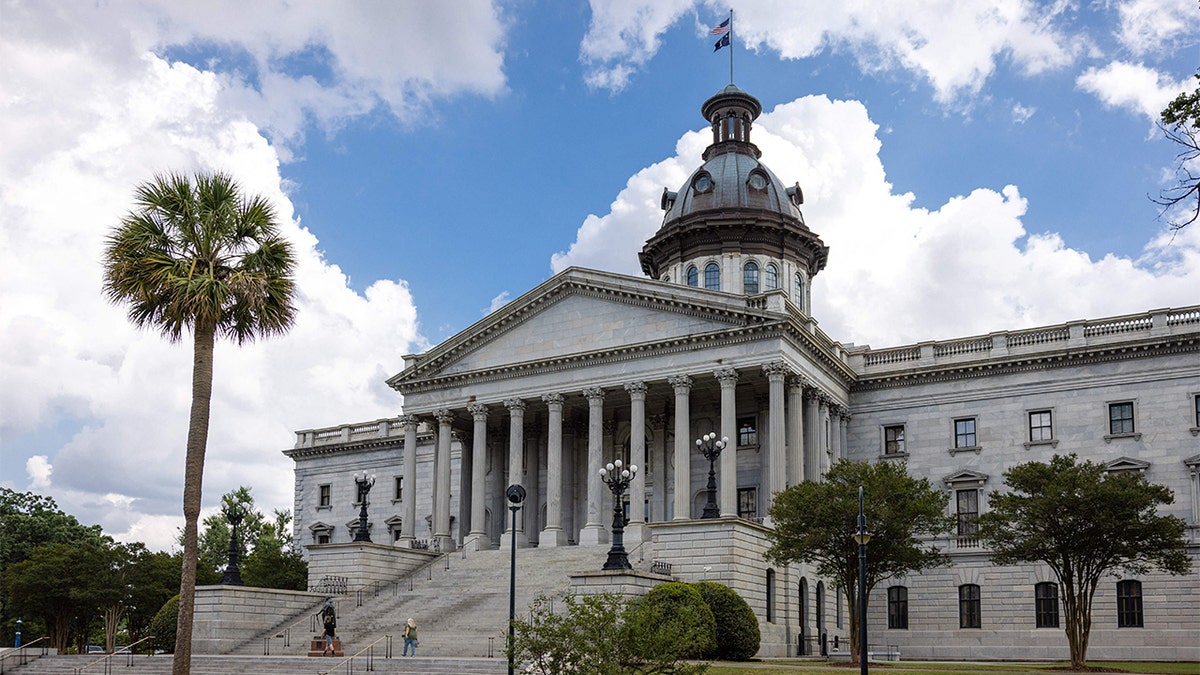
The South Carolina State House in Columbia, South Carolina (Logan Cyrus/AFP via Getty Images)
That three-judge panel found the coastal 1st Congressional District, now held by Rep. Nancy Mace, R-S.C., was an unlawful racial gerrymander when Republican lawmakers shifted about 30,000 Black voters from Charleston County over to the state’s 6th Congressional District, which became more solidly Democratic than it was before.
That seat is held by Rep. James Clyburn, D-S.C., a longtime member of Congress who is Black.
However, the high court’s delay in issuing its ruling means the disputed map will remain in place for the 2024 elections.
Justice Elana Kagan, backed by Justices Sonia Sotomayor and Ketanji Brown Jackson, dissented, saying, “In every way, the majority today stacks the deck against the Challengers. They must lose, the majority says, because the State had a ‘possible’ story to tell about not considering race—even if the opposite story was the more credible.”
EXPERTS EXAMINE HOW SUPREME COURT COULD OVERHAUL VOTING RIGHTS LITIGATION IN POSSIBLE GERRYMANDERING CASE
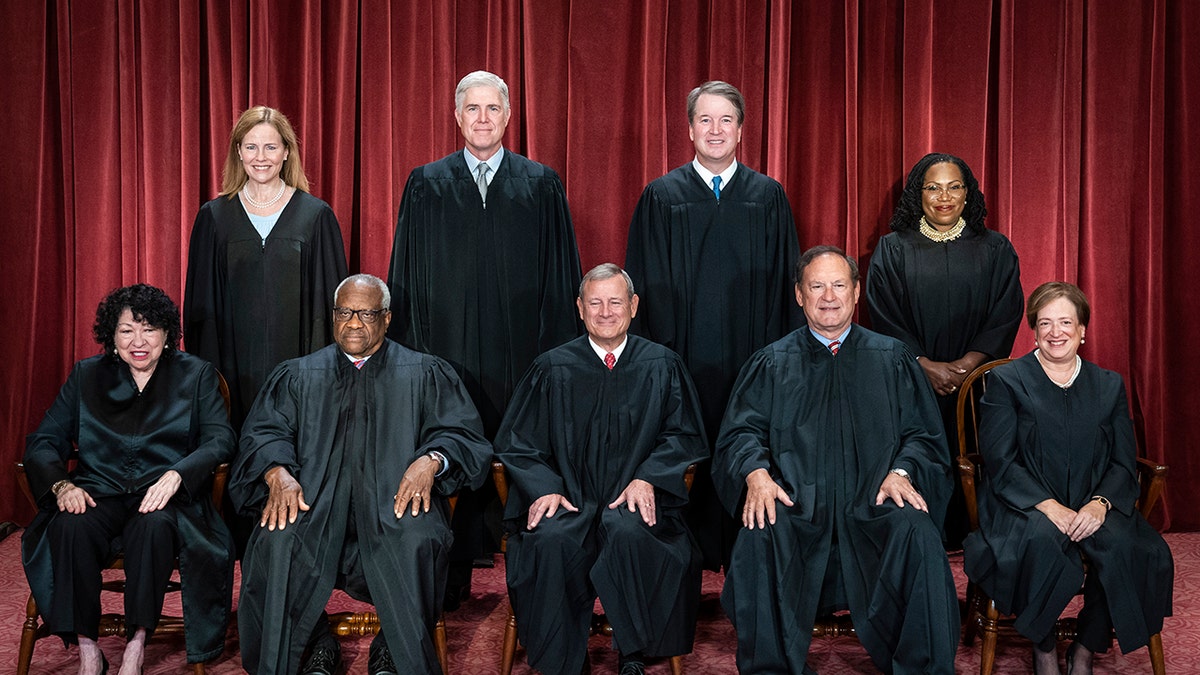
Seated, from left, Justices Sonia Sotomayor and Clarence Thomas, Chief Justice John Roberts, Justices Samuel Alito and Elena Kagan. Top row, from left, Justices Amy Coney Barrett, Neil Gorsuch, Brett Kavanaugh and Ketanji Brown Jackson. (Jabin Botsford/The Washington Post via Getty Images)
“And they must lose again, the majority says, because they failed to offer a particular form of proof—which they did not know would be relevant and which this Court recently told plaintiffs was not required,” she said.
“It does not matter that the Challengers offered extensive evidence, including expert statistical analyses, that the State’s districting plan was the product of racial sorting.”
Read the full article from Here

Southeast
North Carolina Gov. Cooper vetoes bill that would have required more juveniles to be tried as adults

North Carolina Gov. Roy Cooper, a Democrat, vetoed a bill Friday that would have mandated that more minors accused of serious crimes automatically be tried as an adult in court.
As it currently stands, some criminal cases involving youth defendants may remain in juvenile proceedings.
House Bill 834 passed the House and Senate with significant bipartisan support before the veto from Cooper, who sided with critics of the measure who warned the changes scale back the provisions of the 2019 “Raise the Age” law that ended a mandate that children of ages 16 and 17 be tried in the adult criminal justice system.
The opposition to automatically prosecuting children in adult court was considered a way to help more young people avoid public, lifetime criminal records for one-time mistakes, while also giving them access to youth-centered resources within the juvenile system, which does not make records public.
NORTH CAROLINA ATTORNEY GENERAL SEEKS FUNDS TO CREATE FENTANYL, COLD CASE UNITS
North Carolina Gov. Roy Cooper vetoed a bill that would have mandated that more minors accused of serious crimes automatically be tried in adult court. (Sean Rayford/Getty Images)
“I remain concerned that this new law would keep some children from getting treatment they need while making communities less safe,” Cooper wrote in his veto message.
The American Civil Liberties Union wrote in a letter to the governor ahead of his veto that prosecuting children as adults “causes significant harm to young people and does nothing to address the underlying causes of youth crime.”
“The juvenile justice system requires far more accountability, counseling, education, and family involvement than the adult system and it works better,” the letter reads. “Recidivism is significantly higher when children go through the adult system rather than receive the services and punishment from the juvenile system.”
Republican Sen. Danny Britt, who spearheaded the bill, said lawmakers worked to change the law to reflect the reality that young people charged with serious felonies ultimately ended up in adult court and that the legal efforts to move them there from juvenile court were clogging up prosecutors’ juvenile caseloads.
“From a practical standpoint this process improves efficiency in our courts,” Britt told The Associated Press, adding that he supported the “Raise the Age” legislation and still believes it was the correct move.
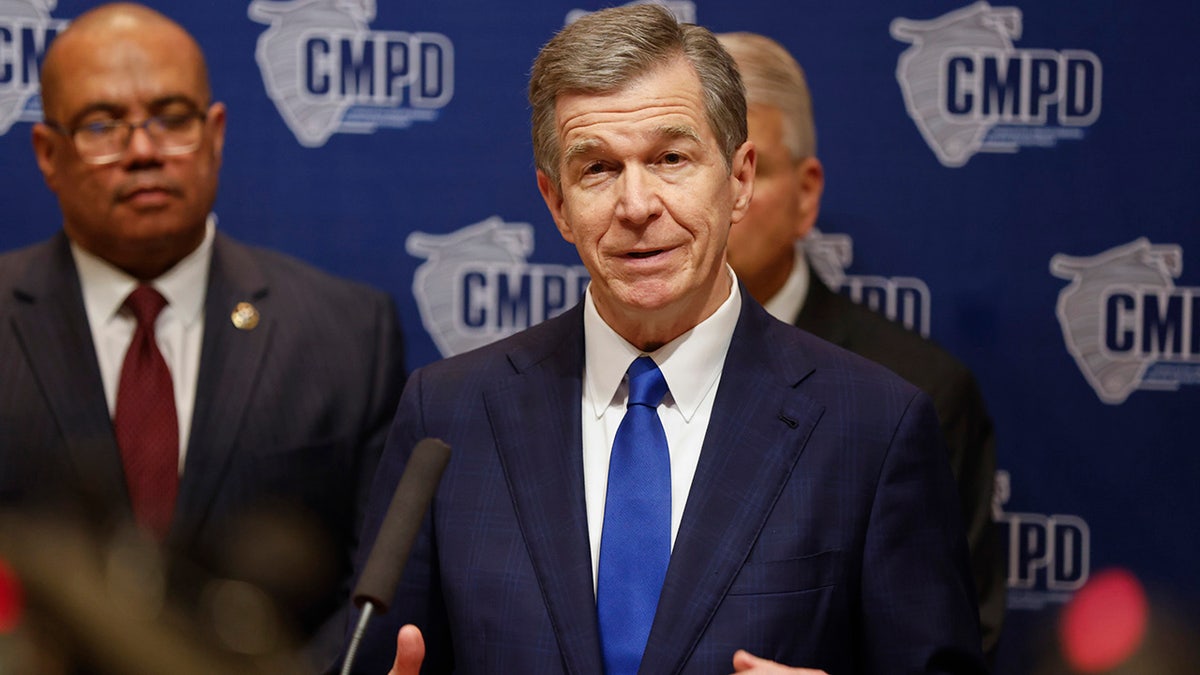
House Bill 834 passed the House and Senate with significant bipartisan support before the veto from the governor. (AP Photo/Nell Redmond)
The bill now returns to the General Assembly, where lawmakers will attempt to override the governor’s veto. Eighteen Democrats in the House and Senate combined voted with all Republicans except one in favor of the legislation.
Republicans hold veto-proof majorities in the General Assembly, and overrode all 19 of Cooper’s vetoes last year. A bill that the governor vetoed earlier this year has not yet had a vote to override the veto.
According to juvenile justice law, cases of children ages 16 and 17 accused of the most serious felonies must be moved to adult court after a notice of an indictment or when a hearing determines there is probable cause that a crime was committed. Prosecutors have discretion not to try in adult court children these ages accused of some lower-grade felonies.
H.B. 834 would have ended the transfer requirement for most of these high-level felonies, but instead placed the cases of these minors in adult court automatically.
North Carolina was the last state where minors of ages 16 and 17 were automatically prosecuted as adults when “Raise the Age” was enacted. Children these ages are still being tried in adult court for vehicle-related crimes.
UNC BOARD OF GOVERNORS VOTES TO REPEAL DEI MANDATES FOR NORTH CAROLINA PUBLIC UNIVERSITIES

The bill now returns to the General Assembly, where lawmakers will attempt to override the governor’s veto. (Nick Ut/Getty Images)
“Most violent crimes, even when committed by teenagers, should be handled in adult court,” Cooper said. “However, there are cases where sentences would be more effective and appropriate to the severity of the crime for teenagers if they were handled in juvenile court, making communities safer. This bill makes this important option highly unlikely.”
The bill would also have established a new process in which a case could be moved from Superior Court to juvenile court if the prosecutor and the defendant’s attorney agree to the transfer, and the adult records would be deleted.
Children ages 13 through 15 who are accused of first-degree murder will still be automatically transferred to adult court after an indictment or hearing that determines probable cause.
The legislation would also have raised penalties for adults who solicit a minor to commit a crime.
The Associated Press contributed to this report.
Read the full article from Here
Southeast
Brother of Parkland school shooting victim welcomes demolition: 'Provides us closure'
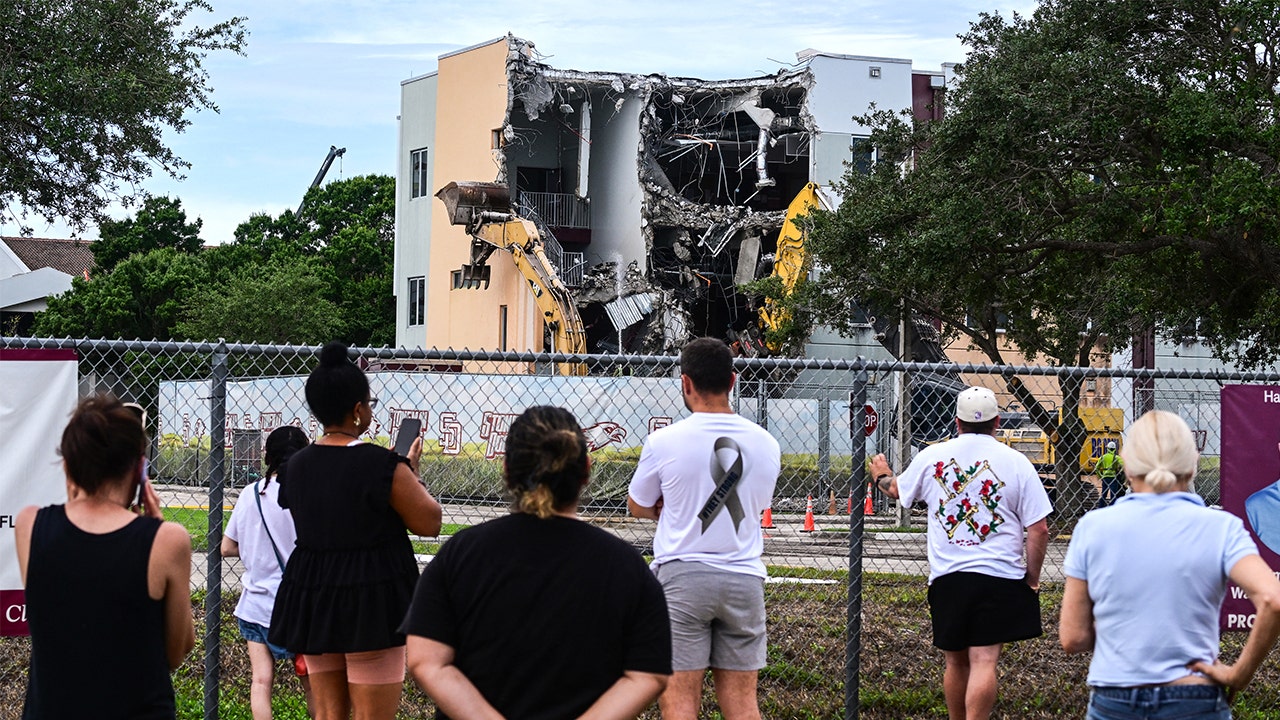
The brother of one of the Parkland, Florida, high school shooting victims said he is glad that the building where the 2018 massacre took place is being torn down.
Demolition began Friday of the 1200 building at Marjory Stoneman Douglas High School in Parkland, Florida, where Nikolas Cruz killed 14 students and three adults in a Valentine’s Day shooting. Cruz’s rampage injured 17 others in what was the deadliest high school shooting in U.S. history.
Hunter Pollack, whose sister Meadow was one of the slain students, said the building is a constant reminder of the horrific tragedy.
“Every day I drive by that building, the pain in my heart. It makes me want to throw up because it reminds me my sister was murdered on that third floor. It could have been prevented, it wasn’t prevented, and it makes me furious,” Pollack, 26, told Fox News Digital.
“I think the building should be knocked down. We’ll never forget that Meadow is dead, of course, she’ll be forever in our hearts.”
PARKLAND SCHOOL SHOOTING REENACTMENT OUTRAGES SOME RESIDENTS, BUT VICTIMS SAY IT’S ‘NECESSARY’
People watch as crews begin to demolish the building where 17 people were killed during the 2018 mass shooting at Marjory Stoneman Douglas High School in Parkland, Florida, on June 14, 2024. Seventeen people were killed and another 17 were injured after a 19-year-old former student opened fire at the school on Feb. 14, 2018. (GIORGIO VIERA/AFP via Getty Images)
The 1200 building at Marjory Stoneman Douglas High School in Parkland has stood as a painful reminder of that tragic day and a nightmarish backdrop to current students who have been attending school in a new adjacent building on the campus. The new building replaced temporary classrooms students had been using for years after the massacre.
For years, it was left standing, frozen in time with its bullet-ridden walls and dry blood-stained floors as Cruz’s case and that of Parkland school resource officer Scot Peterson moved through the courts.
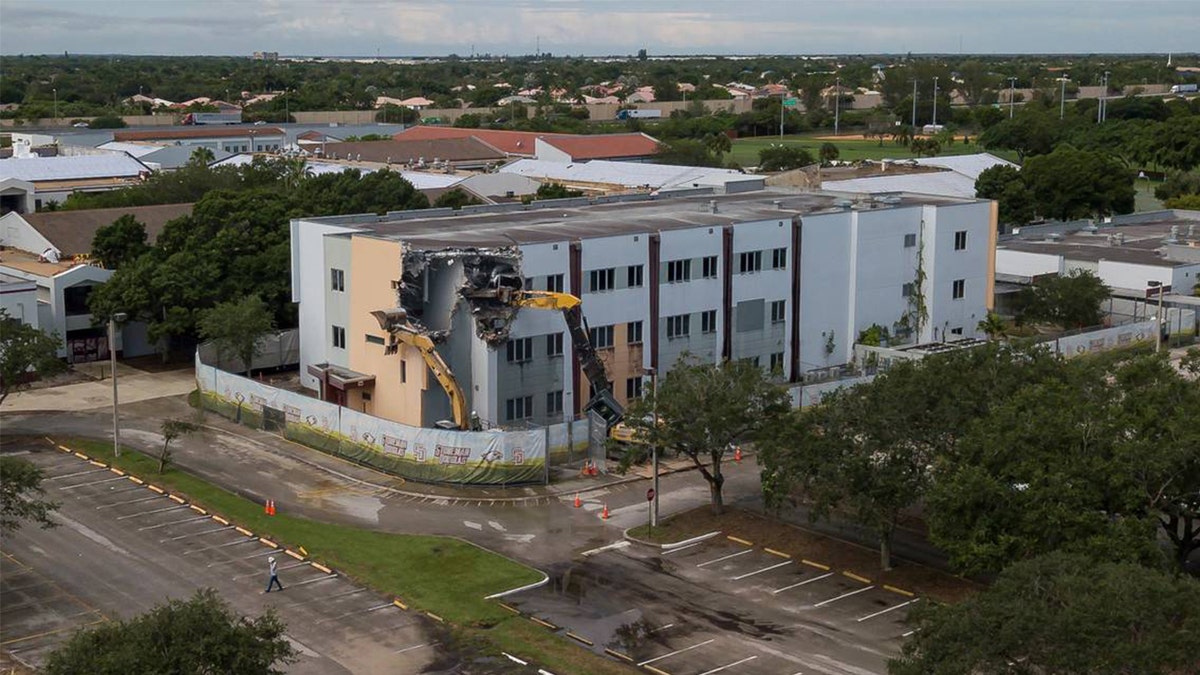
Crews use heavy equipment to tear down the 1200 building of Marjory Stoneman Douglas High School on Friday, June 14, 2024, in Parkland, Fla. On Feb. 14, 2018, a gunmen entered the school and killed 17 people. (Miami Herald)
In 2022, Cruz was sentenced to life in prison without the possibility of parole, while Peterson was acquitted last year of felony child neglect and other criminal charges for failing to enter the building, engage the gunman and help the victims during the six-minute rampage.
However, the 1200 building is now being ripped down, and the operation is expected to take several weeks. Torrential rain in the Sunshine State prevented the start of demolition from going ahead as initially planned on Thursday.
Survivors, families of victims, as well as teachers and staff, had any items they desired returned to them, the Broward County Public Schools said.
JURY RECOMMENDS PARKLAND SCHOOL SHOOTER NIKOLAS CRUZ GETS LIFE IN PRISON, NOT DEATH PENALTY
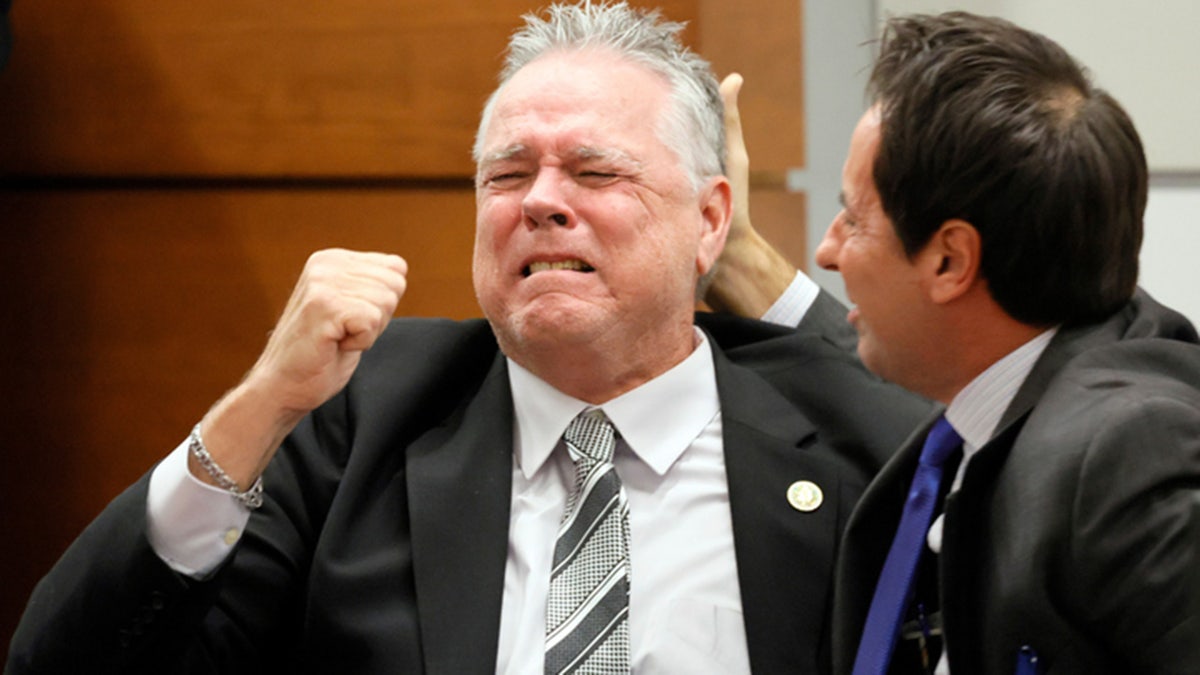
Former Marjory Stoneman Douglas High School Resource Officer Scot Peterson reacts as he is found not guilty on all charges at the Broward County Courthouse in Fort Lauderdale, Florida, on June 29, 2023. Peterson was acquitted of child neglect and other charges for failing to act during the Parkland school massacre, where 14 students and three staff members were murdered. ( Amy Beth Bennett/South Florida Sun-Sentinel via AP, Pool)
Pollack said the 1200 building is passed by residents every day given its prominent location in the neighborhood, at the intersection of Holmberg and Pine Island, and has had a fence erected around it.
“We don’t need the building there to remind us, the building is just a negative thing in our community,” Pollack said.
“Especially for the kids going to school there and the other people that live in Parkland that weren’t necessarily affected by the tragedy. But I have to be reminded every time they drive by the building. So I’m 100% in support of knocking down that building. It’s time we provide our community with some closure and having that building does not provide any closure.”
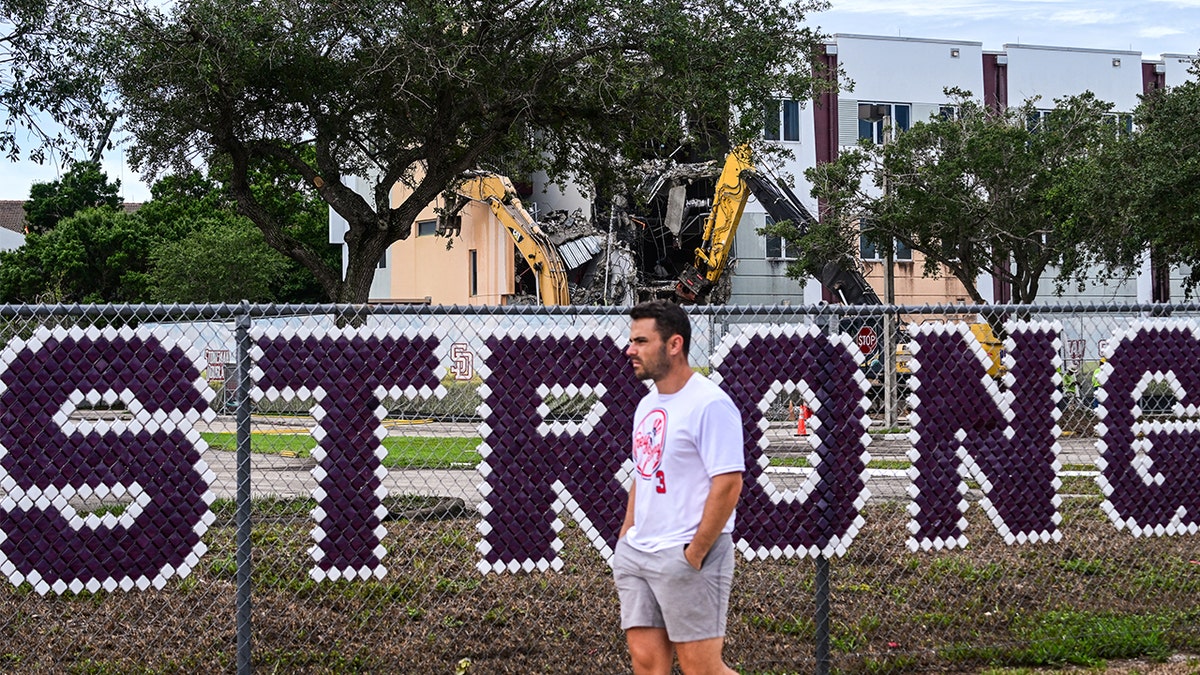
Crews begin to demolish the building where seventeen people were killed during the 2018 mass shooting at Marjory Stoneman Douglas High School in Parkland, Florida, on June 14, 2024. Seventeen people were killed and another 17 were injured after a 19-year-old former student opened fire at the school on Feb. 14, 2018. (GIORGIO VIERA/AFP via Getty Images)
It is unclear what will become of the site after the structure is torn down.
“I think we could build a beautiful memorial, but if we build nothing, I’m OK with that, too,” Pollack says.
“At the end of the day, it’s up to the school board and the other municipalities and elected officials in Broward County to make that decision. But it’s not fair to the other people in the community to just constantly be reminded of such a terrible tragedy that occurred in Parkland.”
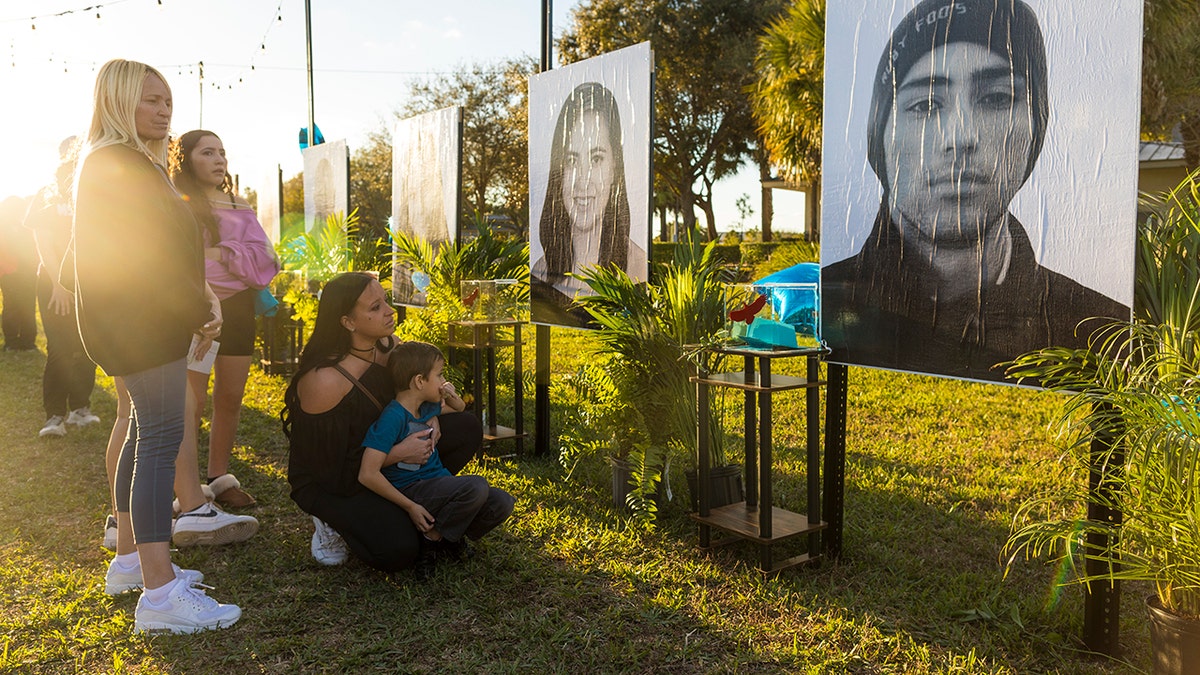
Mariana Rocha holds her son Jackson as she observes a photo of her cousin Joaquin Oliver, right, at a memorial on the fifth anniversary of the Marjory Stoneman Douglas High School mass shooting at Pine Trails Park on Feb. 14, 2023 in Parkland, Florida. On Feb. 14, 2018, 14 students and three staff members were killed during a mass shooting at the school. (Saul Martinez/Getty Images)
Some families have toured the building to see where their loved ones were slaughtered, as did Vice President Kamala Harris and some members of Congress.
Others, however, including Pollack, said it would have been too painful to see where his sister was innocently killed after Cruz stalked three floors of the classroom building.
“I saw the footage of the shooting for the first time in December of 2023… and what I saw reminded me of what you would see in a movie or documentary about war,” Pollack said. “It was just totally vile… to me, it’s not something I wanted to walk through after seeing the footage of what occurred.”
Pollack said that his sister Meadow was shot nine times by Cruz, who was armed with an AR-15-style semi-automatic rifle and multiple magazines. Pollack has since successfully advocated for ending a unanimous jury requirement in death penalty sentencing after a divided 9-3 jury spared the life of Cruz.
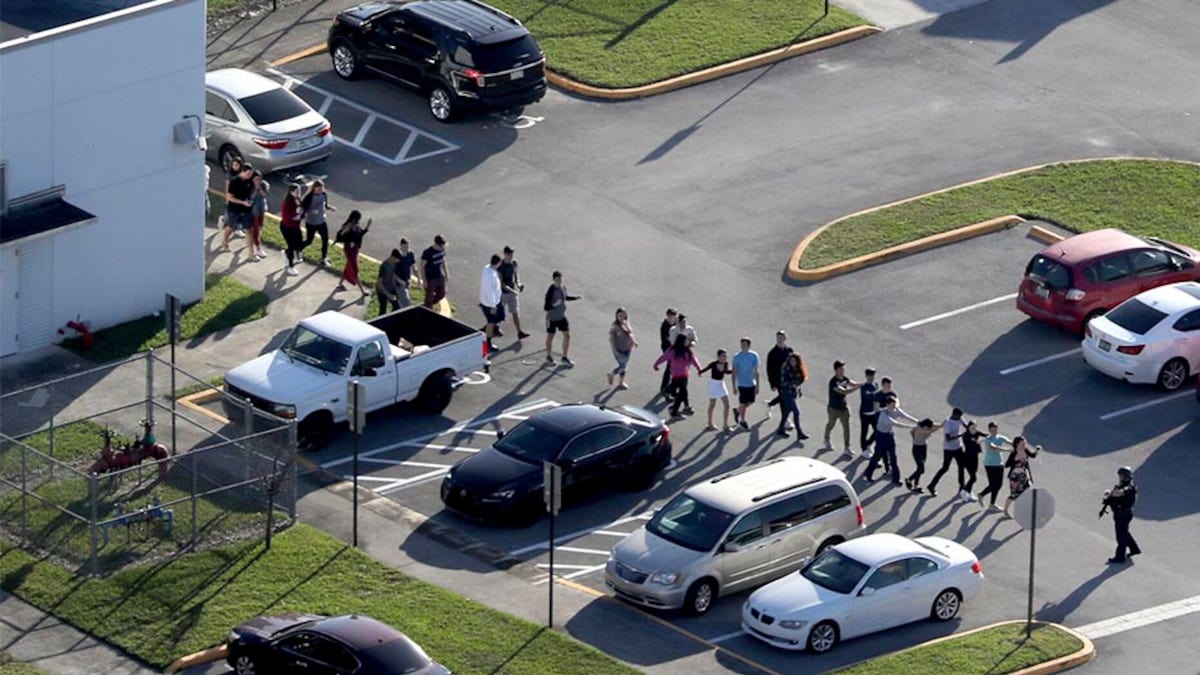
Students are evacuated by police from Marjory Stoneman Douglas High School in Parkland, Florida, during the 2018 shooting. (AP/South Florida Sun-Sentinel)
“You could just see in the video and the pictures that I saw that it’s disgusting,” Pollack said. “If you could compare it to what’s going on in some places like Israel and Gaza, then you could do so because these kids were murdered by an AR-15. My sister was shot nine times, I watched it on camera. It was disgusting.”
“In that building, there was blood everywhere. It was a scene that would be in a horror movie.”
“I spoke to a law clerk that was working in a law firm, and he said that when he watched the footage of what happened he had to take a break as he was throwing up and crying. I mean, it was just totally disgusting and the inside of the building itself was blood all over the place. It was chaotic. It was something that you can’t fathom unless you saw the footage, the pictures, or walked the building yourself.”
“And that’s why I think it’s best that that building comes down, and we get a fresh start in the community, because the community deserves a fresh start.”
Read the full article from Here
Southeast
Florida woman, 71, shot roommate dead because he 'did not clean up after himself': Police
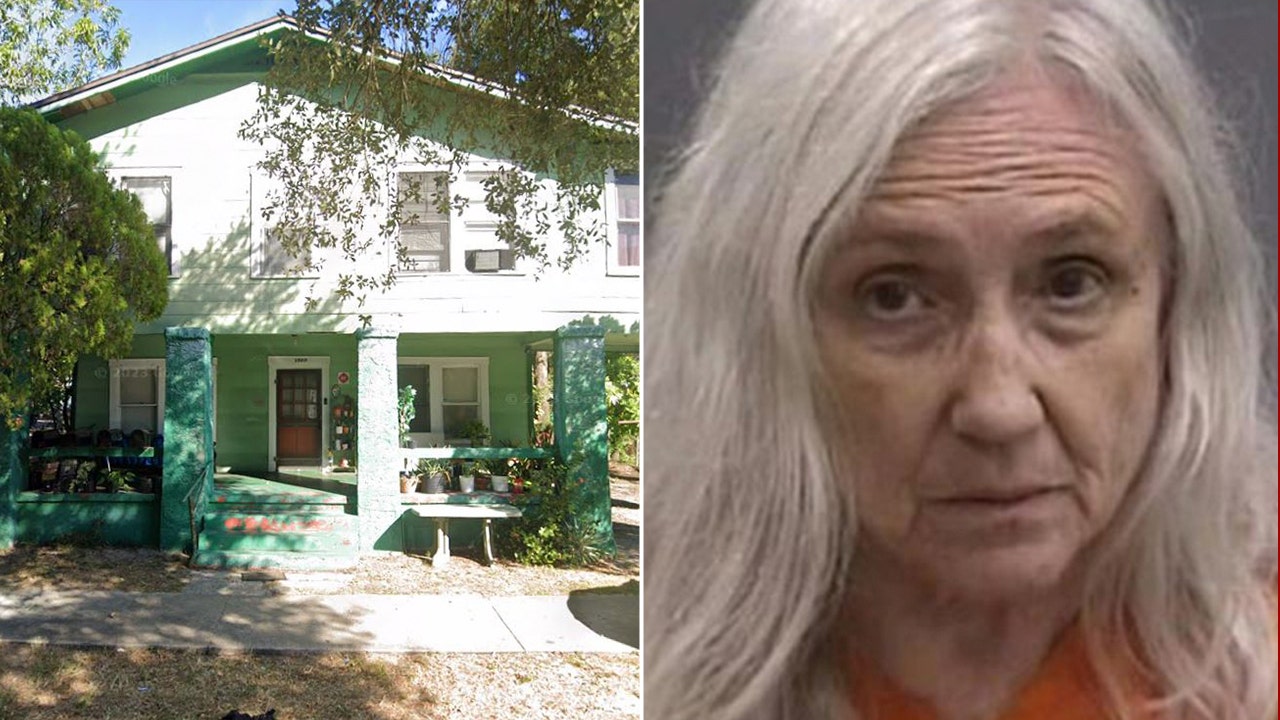
An elderly Tampa woman allegedly shot her roommate dead because he “did not clean up after himself,” police said.
Patricia Whitehead, 71, faces one count of first-degree premeditated felony murder, according to Hillsborough County Court records.
Police responded to a reported shooting at a home on E. 26th Avenue around 9:28 a.m. on Thursday, the Tampa Police Department wrote in a press release. There, they found a man with a gunshot wound to his upper torso who later died of his injuries at an area hospital.
BROTHER OF PARKLAND SCHOOL SHOOTING VICTIM WELCOMES DEMOLITION: ‘PROVIDES US CLOSURE’
Patricia Whitehead, 71, is pictured in her mug shot. (Tampa Police Department)
“Through their investigation, detectives were able to determine that the suspect, 71-year-old Patricia Whitehead, and the victim shared a residential space,” read the release.
Whitehead had grown angry with the victim, “claiming he did not clean up after himself,” police said.
‘EXCEPTIONALLY DANGEROUS’ TIKTOK CHALLENGE LANDS FLORIDA TEENS IN HANDCUFFS
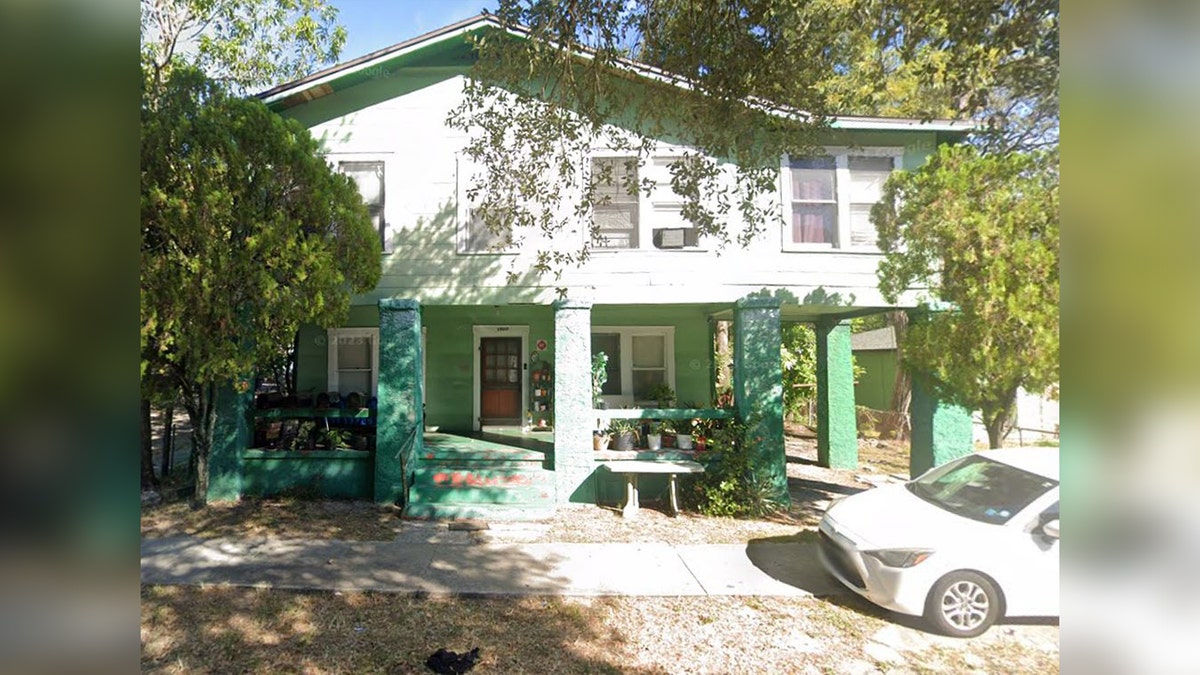
The home where Whitehead allegedly shot her roommate multiple times. (Google Maps)
On Thursday, the victim slammed the door as he left the residence. In response, police said, Whitehead “retrieved her firearm from her bedroom, exited the residence and shot the victim multiple times.”
SUSPECT WHO ALLEGEDLY SHOT MAN, STARTED MASSIVE FIRE AT MIAMI APARTMENT COMPLEX IN CUSTODY
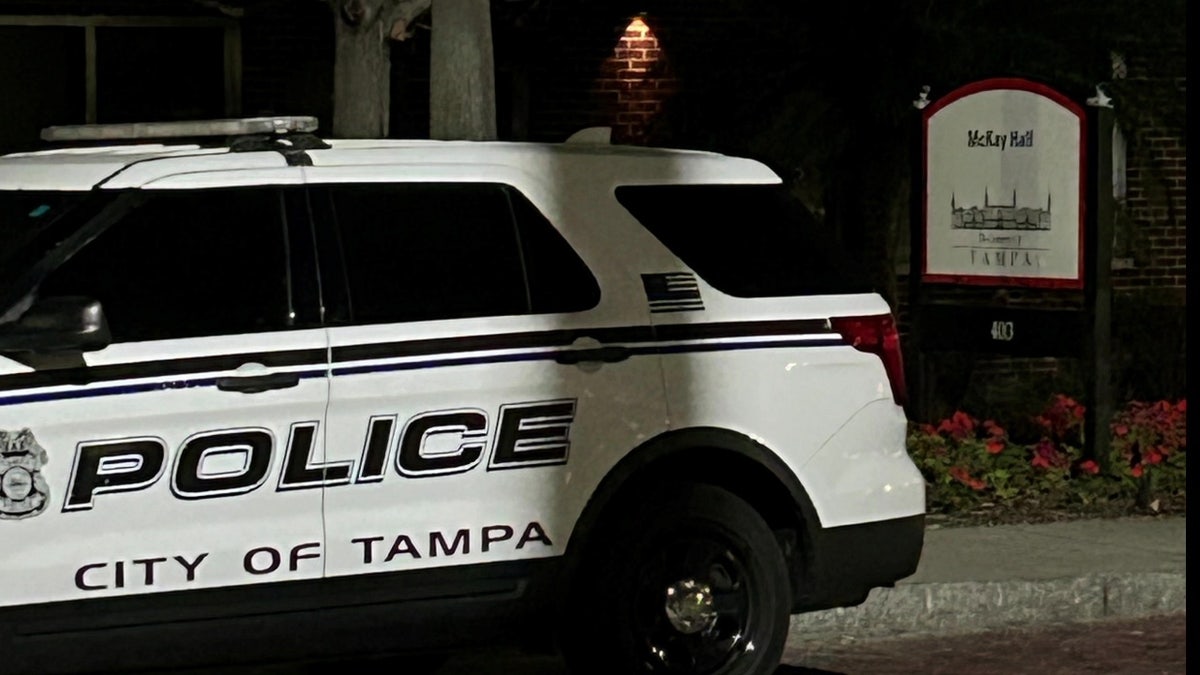
Tampa Police responded to the reported shooting on Thursday morning. (fox 13)
CLICK TO GET THE FOX NEWS APP
Whitehead is currently being detained at the Orient Road Jail without bond, according to online booking records. Her court date has not yet been scheduled. Fox News Digital could not reach her assigned public defender at press time.
Read the full article from Here
-

 News1 week ago
News1 week agoIsrael used a U.S.-made bomb in a deadly U.N. school strike in Gaza
-

 World1 week ago
World1 week agoRussia-Ukraine war: List of key events, day 833
-

 Politics1 week ago
Politics1 week agoGeorge Clooney called White House to complain about Biden’s criticism of ICC and defend wife’s work: report
-

 Politics1 week ago
Politics1 week agoNewson, Dem leaders try to negotiate Prop 47 reform off California ballots, as GOP wants to let voters decide
-

 World1 week ago
World1 week agoDozens killed near Sudan’s capital as UN warns of soaring displacement
-

 World1 week ago
World1 week agoVideo: U.S. Official Responds to Israeli Strike on a U.N. School in Gaza
-

 World1 week ago
World1 week ago‘Bloody policies’: Bodies of 11 refugees and migrants recovered off Libya
-

 Politics1 week ago
Politics1 week agoEmbattled Biden border order loaded with loopholes 'to drive a truck through': critics














